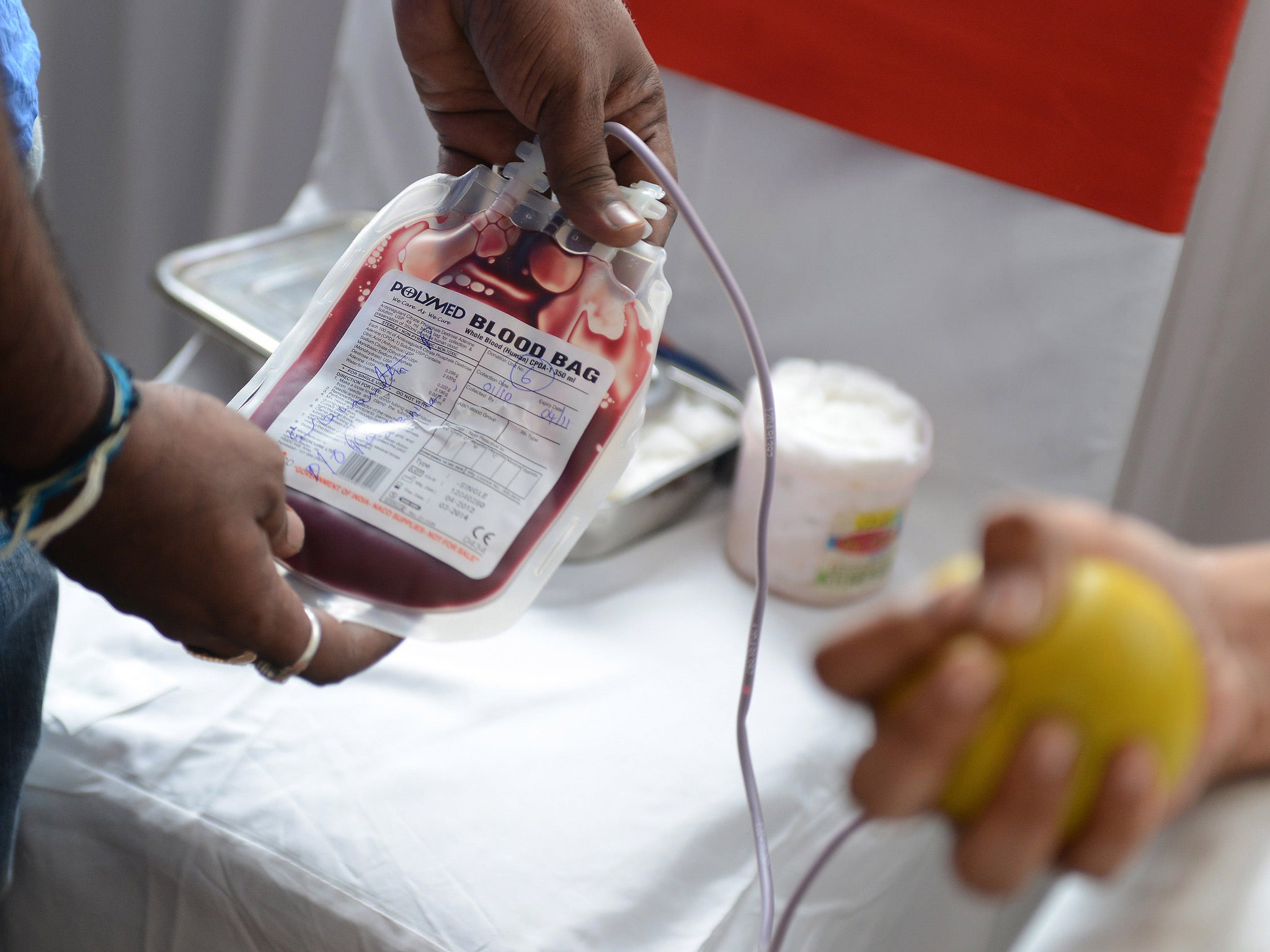NHS calls for rare blood group donors at O and B negative stocks hit four-year low
Plea for people with blood groups O and B negative to donate

The NHS is calling on people with blood groups O and B negative to donate blood, as stocks hit a four-year low.
NHS Blood and Transplant (NHSBT) singled out blood group O negative as “vital” as it can be used for people with any blood group in an emergency situation.
Around 7 per cent of the UK’s population is part of this blood group, while 12 per cent of the blood issued to hospitals for patient use is O negative.
Group B negative blood is needed for ethnic minorities and can also be issued to people with group B positive blood.
Only 2 per cent of people in the UK have type B negative blood, but in the last four weeks hospitals have used 6 per cent more of this blood type than in the same period last year.
NHSBT, which collects blood from donors across England and North Wales, said certain ethnic groups are more prone to particular diseases that require blood, such as sickle cell anaemia in which misshapen blood cells can clog sections of blood vessels, and that a higher proportion of these ethnic groups are blood group B.
Red blood cells have a shelf life of 35 days, and NHSBT said it aims to ensure there is constantly a healthy supply of each blood group.
However, as the overall requirement for blood from hospitals across England and the North of Wales has fallen in recent years, the pressure for different blood groups has varied, and stocks of types O and B negative are be at their lowest levels for four years.
Jon Latham, assistant director for marketing at NHSBT, said the stocks for O and B negative blood groups are “lower than we would like them to be,” calling for donors to come forward.
He said: “We constantly monitor donations and blood stocks for all blood groups throughout the year to ensure that we have enough blood to meet the demand of hospitals and patients, and have adequate contingency stocks.”
Subscribe to Independent Premium to bookmark this article
Want to bookmark your favourite articles and stories to read or reference later? Start your Independent Premium subscription today.

Join our commenting forum
Join thought-provoking conversations, follow other Independent readers and see their replies